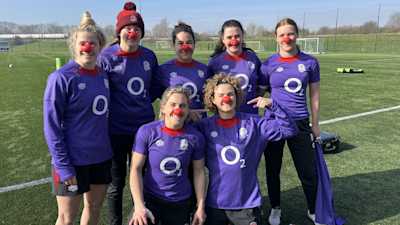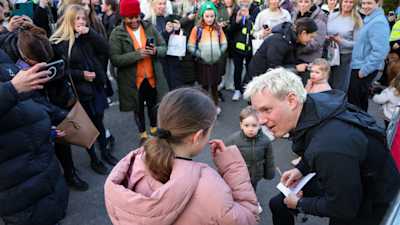
By Ruth Davison, Executive Director Impact and Investment, Comic Relief
I write this article a week after Comic Relief announced a total of £63.5million on the night of Red Nose Day 2019 – an incredible amount donated and raised, that we will use to fund transformative projects, tackling poverty and fighting injustice, around the world. And the total income is still growing daily.
The amazing generosity of the UK public never ceases to inspire me. Since Comic Relief was established 34 years ago, over £1.3bn has been raised – this is something we will never take for granted, so over and above anything else, we at Comic Relief would like to say a big thank you to everyone who supported us this year.
The landscape for charities, as it is for the wider economy, is challenging and uncertain, with many trends showing static or declining income across the sector, and we are not immune from this.
In response, we will continue to evolve, introducing new online fundraising models and developing innovative partnerships to augment Red Nose Day.
But the income we raise is just one metric of Comic Relief’s success. We are a fundraiser and a funder, but we are also a storyteller. As a national institution with enormous reach, we have an incredible opportunity – and a huge responsibility – to consider how the stories we tell influence hearts and minds and inform public opinion.
We know that the stories we tell on Red Nose Day – whether through our partnership with the BBC or in schools and workplaces - must be a driving force for change.
It is in this area of storytelling that we have always been pioneers – shining a light on issues that both need and lack attention, whether that was disability rights in the 1990s, mental health in the early 2000s or UK food poverty today.
But, it is also the area where we can go further and do better.
A year ago our Chief Executive, Liz Warner, made a public commitment to change our storytelling. I hope that viewers noticed the beginning of those changes this year.
In the weeks leading up to Red Nose Day, you might have seen projects we fund featured in a range of programmes from Saturday Kitchen - which showcased our investment into the social enterprise Change Please, training people with experience of homelessness as baristas – to The One Show which profiled one of our Social Tech partners Playphysio, who have used tech to gamify physiotherapy for children with cystic fibrosis.
On Red Nose Day itself, we highlighted a range of issues that we have funded for years, but not previously showcased – for example, child marriage and the global migration crisis. Critically, our appeal films featured far more people telling their own stories.
This mirrors our funding of locally led organisations. In these films, the storytellers were and are as important as the stories being told. They are the focus, not us, as their funder, or the celebrity who interviews them.
It is a first step, but an important one on a journey that we are committed to continuing. For this reason it was disappointing to see, even before our content was in the public domain, such a vital debate over representation in charity fundraising – with all the associated complexities of structural power inequalities, race and power dynamics – be overtaken by a hostile and polarising sideshow in relation to a single photograph shared by one individual on social media.
Let’s be clear, Comic Relief acknowledges and agrees with many of the points that have been raised by people who have been calling for change in the way we, and others in the sector, present our work. Our commitment to making change came before this year’s media coverage and will – with the support of the public and our partners - continue well beyond it.
One specific next step on that journey will be Comic Relief working with more local film makers.
Last year we invested with our Nairobi-based partner, Docubox, into a programme called Sema Stori (Stories that Sing) to support local documentary makers across East Africa. We will also be giving people more agency in framing their own stories – just as we, in our role as a funder – are striving to give partners greater agency to design solutions to problems they understand far more than we ever will.
Comic Relief made a commitment to change not because we thought it would be easy – but because it was, and is, the right thing to do. We will seek to move forward listening more and working harder to be continually bold, fresh and brave.
Another strategic change of direction announced last year was to move away from being an organisation that only operates an annual event and to become digitally ready. Sharing our stories on a broader range of channels, throughout the year, not only gives us an opportunity to be more visible and relevant to a wider range of supporters, but also to innovate and learn quickly.
Our first ever live Comedy Spectacular, held this year at Wembley, is a great example of this - a sell-out event that was a new way for us to fundraise and a different way to engage the UK’s leading comedians who are so much part of our DNA.
We hope all who support us will continue to come along with us on our journey. Change will continue to take place in the public eye, and we won’t always get it right, but we will remain focused on the positive impact we and our partners can make – through this combination of storytelling and funding – with and in communities around the world.


